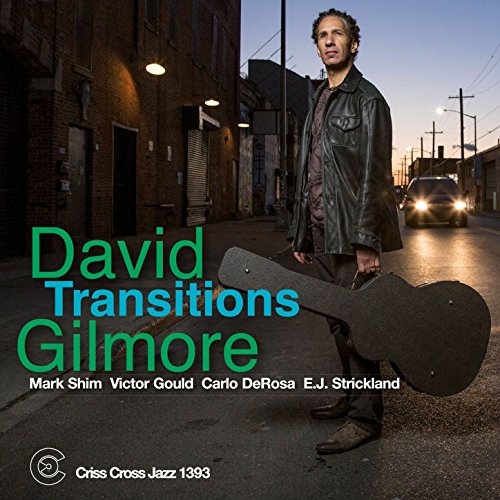
Criss Cross isn’t the most fashionable label and can be narrow in musical outlook. But it is one of the most consistent in terms of quality and has a firm identity and delivers regularly and professionally. It knows what it wants however doggedly it has pursued that desire over many years and provides it in bulk, usually, like other lesser known wannabe similarly inclined labels such as Daybreak, providing modern mainstream jazz, a style that comes out of the hard bop lightly swinging medium and uptempo acoustic tradition established in the 1950s and 1960s that knows about bebop and the blues and values AABA song structure and soloists taking their turn, after a convincing head, the theme restated possibly after a bit of trading fours when the drummer gets round to summing up what the horn players or other players have just achieved.
Some artists end up on Criss Cross from a more avant background. Saxophonist David Binney for instance has had a recent album out on the label and David Gilmore like Binney stems from avant jazz, in Gilmore’s case he was a close playing associate and visceral presence in Steve Coleman’s best Five Elements line-ups in the 1990s. The other musical life of the guitarist subsequently flowered in a different situation playing with Joss Stone when the soul songstress had become a huge transatlantic star oh more than a dozen years ago now. That was a surprise back then but showed just what the guitarist can offer: personally I don't think it is healthy for a jazz musician to stick at one micro-style for ever and a day, and of course a guy has got to eat. I have lost track of Gilmore in recent years but enjoyed his sideman work with Rudresh Mahanthappa on Samdhi back in 2011. Transitions thrives on a scrabbling edgy momentum from the off on ‘End of Daze’, the bustle of drummer EJ Strickland letting the rhythmic clutter foam properly and thicken.
According to the label Transitions is worthily “a tribute to recently deceased masters Bobby Hutcherson, Toots Thielemans and Victor Bailey, the legendary trumpeter Woody Shaw, and living elders Annette Peacock and Hermeto Pascoal, by interpreting their music along with two original compositions.” Tenor saxophonist Mark Shim when he first comes in on this September 2016 Brooklyn studio set has presence, his tone really distinctive, a kind of a purply lived-in timbre underpinning it all hastening the process towards making you feel at home. Pianist Victor Gould is business-like and reminds me of George Colligan. Like the Portland player he can be so expansive and intuitive with his use of augmented chords that provide plenty of width in the way he wraps himself around the solo instrument that he happens to be accompanying. Carlo DeRosa is the bassist while vibes star Bill Ware makes an appearance for the Hutcherson cover ‘Farallone’ recorded by Hutcherson at Montreux in 1973 and subsequently made available when the album made it to CD.
The practically ubiquitous Grégoire Maret is on, what else, Toots Thieleman’s signature tune ‘Bluesette’, the sentimental choice here. Gilmore has plenty to say overall when he takes his gritty electric guitar solos and he is good at telling a story and never forgets the blues even when his solos become labyrinthine and he needs to choose unusual changes and get stuck in to solve the harmonic problems that arise to resolve his highly involving ideas. One thing you don’t get here is cliché. Criss Cross may be unfashionable mainly because the covers and artwork are pretty lame but what isn’t is the fine Joe Marciano engineered artisan-level sound quality and you can hear everything even on a stream.
This album won’t change the world but values authenticity, places the emphasis firmly on good musicianship and filters out the meretricious crap that a lot of jazz record production values for some reason elsewhere but not here such as 30-second meaningless interludes, washes of electronic fluff that mask the essential sound itself put there because a producer wants to show their chops, and the dreaded but highly gratuitous deathless minutes of applause mastered up to massage the ego of the musicians and fill out the running time. Above all Gilmore knows how to communicate and provide a bit of life, spirit, always embossed on his personal calling card, and never to forget reaching deep within: heaps of integrity. SG